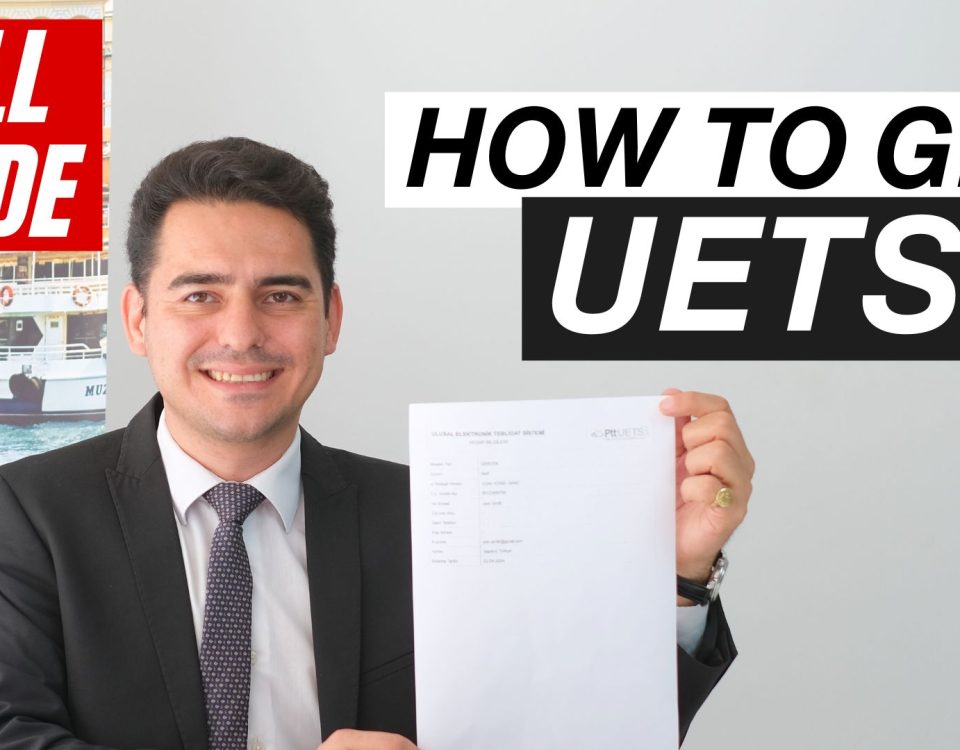Tenant and Landlord Rights in Turkey: A Resident’s Guide

What to Do When Residence Permit Was Stolen
March 27, 2024
Turkish Residency and Travel Restrictions
March 28, 2024Navigating the labyrinth of rights and responsibilities can be a daunting task for both tenants and landlords within the eclectic mix of modern and traditional dwellings in Turkey. A firm understanding of the legal framework is crucial in ensuring a harmonious rental relationship and in upholding the respective entitlements and obligations that define the real estate landscape. The array of laws and regulations governing tenancy in Turkey establishes a blueprint for fair play, security, and recourse in a nation that bridges continents and cultures. This guide aims to elucidate the fundamental rights and duties bestowed upon tenants and landlords alike, offering a comprehensive overview that is essential for residents seeking clarity in their roles within the property rental sector. Whether it’s safeguarding the security of tenure for occupants or delineating the perimeter of control for property owners, the intricate balance of interests at heart shapes the core of tenancy agreements under Turkish jurisdiction.
Understanding Legal Frameworks in Turkish Real Estate
In Turkey, the legal framework governing the relationship between tenants and landlords is primarily set out in the Law of Obligations and the Civil Code. These statutes meticulously articulate the rights and responsibilities of each party, providing a structured approach to tenancy contracts, which are essential for defining the terms of occupancy, payment, maintenance, and termination. A lease agreement in Turkey must be written and registered to avoid legal ambiguities; this document is the cornerstone that not only protects the landlord’s property rights but also ensures the tenant’s right to a secure and habitable living space. To navigate the Turkish rental market effectively, both parties must be conversant with their legal entitlements and understand how to apply them within the context of these regulatory confines. Compliance with these laws is not merely a formal requirement but a fundamental aspect that preserves order and fairness in the property rental sector.
Beyond statutory obligations, Turkish tenancy laws also empower tenants with specific rights designed to protect their interests. These include the right to privacy, which limits a landlord’s entry to the rented premises, entitlement to a peaceful possession free from unjustified eviction or harassment, and the right to have necessary repairs conducted in a timely manner. Moreover, tenants have the prerogative to challenge and seek redress for rent increases that exceed the legally prescribed limits based on the yearly consumer price index. Recognizing these protections is imperative for tenants, as it not only ensures their comfort and security but also provides them with legal leverage in negotiations and potential disputes. On the other side, landlords retain the right to receive rent in a timely manner, to request reasonable security deposits, and to seek eviction through proper legal channels for tenants who fail to meet their contractual obligations. These mutual rights serve as a balancing mechanism, fostering a stable and equitable tenancy environment.
Landlords in Turkey also have the duty to ensure that the premises meet health and safety regulations, offering tenants a safe environment that adheres to national standards. This includes maintaining structural integrity, providing necessary utilities, and upholding hygiene requirements, which are stipulated in housing regulations. Failure to meet these obligations can grant the tenant legal grounds to request repairs, withhold a proportionate amount of rent, or in severe scenarios, terminate the lease. It is essential for both parties to maintain a clear and documented communication trail regarding any issues or agreements on maintenance and repairs to prevent disputes. Additionally, tenants must be granted a reasonable period to vacate the property post-termination notice, which is typically 15 days for monthly rentals. Knowledge of the law’s nuances, such as these, empowers both tenants and landlords to navigate the rental process with a sense of security and clarity, forging a relationship that stands on the bedrock of reciprocal respect and legal compliance.
Navigating Rental Agreements: Protections and Obligations
In Turkey, rental agreements stand as the bedrock of tenant-landlord relations, and understanding their nuances is vital. These contracts, typically celebrated in written form, not only define the duration, payment terms, and use of the property but also include specific clauses adhering to the Law on Real Estate Rentals, protecting both parties. Tenants are endowed with the right to a safe and habitable dwelling, while landlords reserve the ability to request a security deposit—regulated to not exceed three months’ rent—to safeguard against potential damages. Such agreements are designed to preclude disputes by ensuring terms are transparent and legally binding, with both sides obliged to honor the commitments outlined within the contract. The sanctity of these agreements, once duly signed and often registered with the local authorities, help to ensure stability and predictability in the rental landscape of Turkey.
Beyond the establishment of fundamental terms, rental agreements in Turkey impose certain obligations on the parties involved, with the law stipulating adherence to mutual responsibilities. Tenants are required to maintain the property in good condition, respecting the premises and notifying the landlord of any necessary repairs without undue delay. Strict regulations govern rental increases, which cannot exceed the rate of change in the consumer price index and should be clearly outlined in the agreement. Landlords, in turn, must ensure that structural integrity and essential services remain intact, allowing the tenant quiet enjoyment of the property unencumbered by unwarranted interference. These reciprocal duties are designed to foster a stable and respectful tenancy, preventing exploitation and promoting an equitable tenor in landlord-tenant interactions.
In the spirit of fostering a balanced relationship, Turkish law provides mechanisms for dispute resolution should conflicts arise despite the safeguards built into rental agreements. Termination of leases, whether initiated by tenants or landlords, must be executed following the conditions stipulated in the agreement and the relevant legal provisions. For instance, landlords must provide tenants with a statutory period of notice before eviction, and similarly, tenants must give due notice prior to vacating the property. When rental disputes cannot be amicably settled, parties can seek redress through the Turkish court system or engage in arbitration or mediation services. As a final note, it is prudent for both tenants and landlords to stay abreast of their rights and duties under the constantly evolving Turkish legal framework, ensuring that any agreement they enter into is both fair and enforceable.
Resolving Disputes: The Role of Turkish Property Law
Resolving disputes between tenants and landlords in Turkey is primarily governed by the Law of Obligations and the Turkish Civil Code, which together create a comprehensive legal framework for addressing issues that may arise during tenancy. This framework ensures that all parties have access to legal avenues to assert their rights and seek resolution. The Turkish legislation stipulates that mediation is a mandatory first step before any rental dispute can proceed to court, underlining the state’s preference for less adversarial, more conciliatory means of dispute resolution. This initial step is designed not only to alleviate the burden on the judicial system but also to foster an environment where both parties can reach a fair agreement with the help of a neutral third party, thus preserving the tenant-landlord relationship whenever possible and promoting prompt and practical solutions to conflicts.
In instances where mediation fails to yield an agreement, the involved parties may seek adjudication from the Turkish courts. Tenants and landlords have the right to file a lawsuit, and the courts are equipped to handle a plethora of disputes, ranging from eviction proceedings and rent adjustments to the enforcement of repair obligations and the return of security deposits. The judicial process, though potentially time-consuming, is structured to offer a balanced assessment of the claims presented by both sides. Judges often refer to established precedents and the specificities of the rental contract in question, ensuring that decisions are made with consideration to the equitable treatment of each party’s rights and responsibilities as defined by law and agreement.
In light of this, it’s paramount for both tenants and landlords in Turkey to keep detailed records and maintain open lines of communication. Documentation such as rental agreements, receipts, and correspondence can be decisive in legal proceedings. Moreover, understanding the statute of limitations is critical, as bringing forth a claim must occur within a specific period after an issue arises or is recognized. In summary, while the Turkish legal system provides mechanisms for dispute resolution, a proactive and informed approach by both parties can significantly enhance their ability to protect their rights and resolve conflicts swiftly and fairly.




